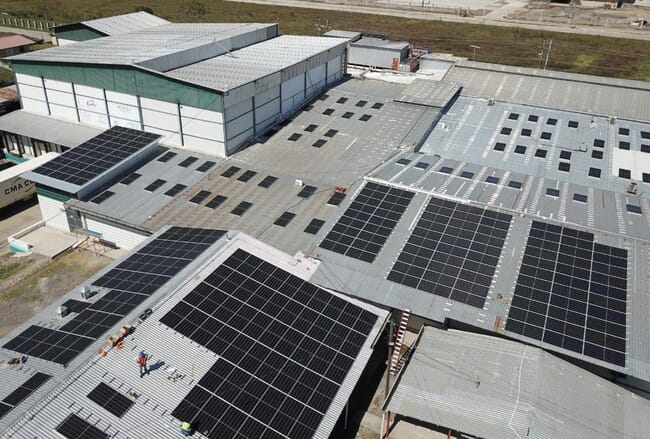
The company aims to have it entirely powered by solar energy by the end of 2024
The commissioning of the first stage of a solar energy micro-grid is the result of a three-year development effort targeted towards reducing ESF Seafoods’ carbon emissions and energy costs. ESF will replace over 60 percent of its energy needs with electricity from solar during 2023 and have 100 percent carbon neutral processing by end of 2024.
Gerardo Tome, president of ESF Seafood, noted in a press release: “Harvesting, processing and freezing shrimp in a tropical climate requires a very significant amount of energy. Southern Honduras is an ideal location for capturing solar energy due to the area’s high photovoltaic (PVOUT) rating and we are able to utilise our plant’s roof space for the solar panel installation which reduces the need for additional land usage. A recently approved law for commercial bi-directional meters enhances the profitability of additional energy generation by allowing us to supply surplus back into the national grid during non-peak periods.”
Ivan Clements, director at ESF Seafood, added: “Reducing carbon emissions is a critical objective for our customers worldwide. We will be the first shrimp processing plant to migrate to renewable energy; we will decrease our carbon footprint by over 2,000 tonnes in 2023 and have a clear plan to achieve carbon neutral status. Taking a leading position in sustainability and energy security will help ensure the ongoing success of our business in Honduras and continue to provide our customers with high-quality, value added shrimp and our people with good jobs.”



